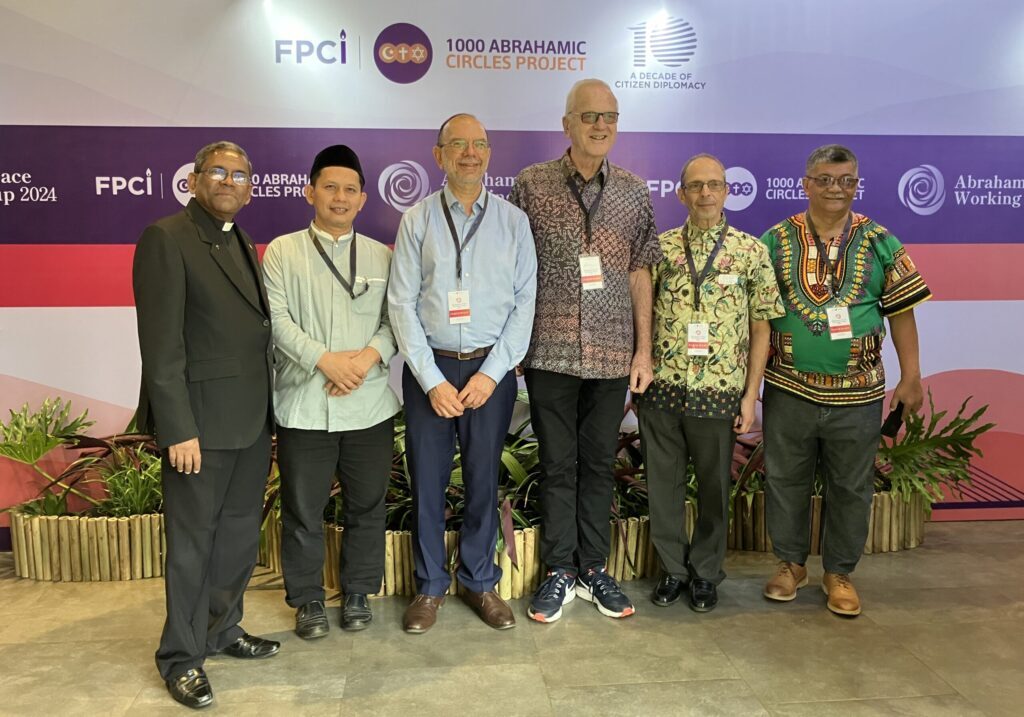Australia/Israel Review
Media Microscope: Poll-er Opposites
May 2, 2005 | Jamie Hyams
Poll-er Opposites
The term “gigo” (garbage in, garbage out) was invented by computer scientists in the 1950s. Back then, the term was another addition to the growing vocabulary of the computer industry. Yet, according to critics, this unusual acronym could just as easily be applied to the findings of the heavily-publicised Lowy Institute poll, which was published on March 28.
The Lowy Institute is an “independent, nonpartisan think-tank” that “wishes to deepen the debate about international policy in Australia”. This is admirable. But it appears from the findings of its new major study, a poll of Australian public opinion, that the Institute, founded in April 2003, may still be suffering from teething problems. Its inaugural poll, which surveyed 1000 Australians on a wide range of questions dealing with public policy, concluded that only 58% of Australians have positive feelings towards the USA, as opposed to 65% for the United Nations and 85% for Europe. New Zealand topped the list — 94% of respondents felt positive about our trans-Tasman neighbours – while only Iran, Iraq, Indonesia and the “Middle East” ranked lower than the USA. Astonishingly, the same percentage of respondents (57%) was worried by American foreign policy as by Islamic fundamentalism.
Some were quick to laud the poll’s findings as proof of their belief that Australia’s relationship with the USA is somehow harmful. In a debate on the findings in Sydney’s Daily Telegraph on March 30, Keysar Trad, President of the Lebanese Muslim Association, was keen to use the poll to support his own views, arguing “Australians should be more concerned with the United States than radical Islam.”
However, a number of others offered serious criticisms of the method of questioning used in the survey. In his debate with Trad, The Australian Strategic Policy Institute’s Aldo Borgu compared the survey to “push-polling”, writing “The Lowy poll proves that the choice of question often determines the answer. If you describe US foreign policy as a ‘potential threat’ then odds are that Australians will identify it as one in a poll.”
The Australian’s Greg Sheridan (Mar. 29) supported Borgu’s reasoning. In an article entitled “Public opinion is putty in academic’s hands”, Sheridan asked, “How did the poll produce such results? The answer lies in the questions…[In one question] respondents were asked to agree or disagree with the proposition: ‘Australia should act in accordance with our security alliance with the US even if it means following them to war with China over the independence of Taiwan.’”
“Not surprisingly, a majority would not sign a blank cheque for a hypothetical war.
“A more realistic question would have been: Do you think China is justified in mounting a military invasion of Taiwan, even if it causes tens of thousands dead, in order to reunify it with mainland China?”
Another critic, Gerard Henderson, criticised the negative effect the poll will have on Australia’s reputation overseas. Speaking on ABC Radio National’s “Breakfast” program on April 8, Henderson said “when The New York Times has a heading ‘US image in Australia isn’t good’, and when the International Herald Tribune carries on its first page ‘Australians view US as a threat to peace’, I mean I think that does cause some problems.”
Henderson also noted that the Lowy Institute downplayed a finding that 66% of Australians supported the principle of preemptive action against terrorist threats. He remarked: “Now I would have thought they’re the kind of issues that the people who put the Lowy report together would be highlighting.”
The Australian joined in, running a highly critical editorial on March 31. Noting that the poll contradicted itself — it also found that 72% of Australians were supportive of the Australian-American alliance — the national broadsheet surmised, “Presumably they do not regard a hypothetical alliance with Islamic fundamentalism with the same warmth.”
All the aforementioned critics agreed that the Lowy Institute potentially has a lot to offer, and expressed hope that future efforts would be less problematic. Sheridan summarised the overall criticism well. Referring to those who ran the poll as “the foreign policy class”, he pointed out, “The really disappointing thing about the Lowy poll is that it indicates that the Lowy Institute could end up being just another familiar echo chamber, as the same narrow group of people quote to each other from the same sacred scriptures to support the same tired orthodoxies. The two groups you’ll never influence this way, of course, are the Government and the public.”
Tags: Australasia, Indonesia






